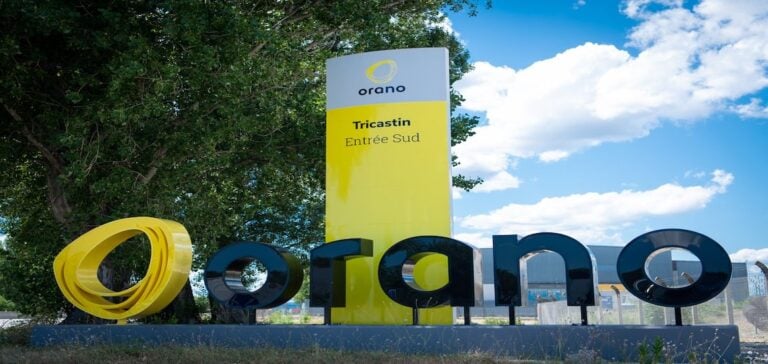French nuclear group Orano returned to the black in the first half of the year, with a net profit of 117 million euros compared with a net loss the previous year, and raised its sales forecast for 2023 in the face of a “buoyant market”.
Orano: flourishing financial health
The industrial company specializing in the recovery and processing of nuclear materials saw its sales rise by 7.2% in the first half, to 2.3 billion euros, “driven by a positive market dynamic, with significant price effects”, its CFO, David Claverie, told AFP.
Net profit for the Group, which employs 17,000 people in 17 countries, was back in the black at 117 million euros, after a net loss of 359 million euros for the same period last year. Thanks in particular to “the good performance of our dedicated end-of-cycle assets”.
Overall, “nuclear power has returned to the forefront of international discussions over the past few months”, “with growth forecasts for nuclear power revised upwards”, said Mr. Claverie.
Key factors and outlook: decarbonization and strategic independence at the heart of Orano’s forecasts
He cites both climatic reasons, with nuclear power envisaged as a solution for “decarbonizing the world’s economies by 2050”, and strategic reasons, with “a desire for independence from the Russian nuclear industry” since the outbreak of war in Ukraine. Against this backdrop, Orano has raised its sales forecasts for 2023 from “weak growth” to over 10% growth compared with 2022, when the group generated sales of 4.2 billion euros.
The company, which is controlled by the French state and was formed from the restructuring of the former Areva, has nevertheless reported a gross operating margin “down 6.8 points compared with 2022”, concedes its CFO, explaining this “occasionally low” level by the “consistency of our contract flow” and “an inflationary context for our costs”.
“The contribution to earnings of our different business segments can vary quite significantly from one half-year to the next,” explains Mr. Claverie.
After a “first half marked by variability”, the Group expects “a second half that will contribute more both in terms of earnings and cash generation”, with net cash flow (-189 million euros in the first half) expected to “recover significantly” to end up “significantly positive”, it said.






















